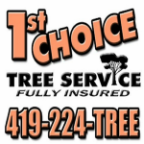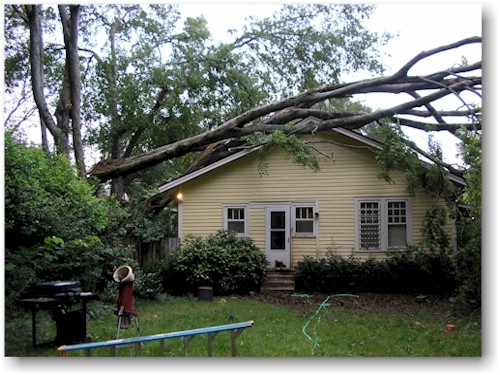| Trees add value and beauty to your home, but they also can spell trouble if they aren't properly maintained. Dead or dying trees aren't just unsightly; they pose safety hazards and can cause liability issues. It's important for homeowners to understand what is covered by their homeowners insurance policy if a tree should fall on their property or their neighbor's property. Overview Most basic homeowners insurance policies will cover damage to your house and the contents caused by falling trees and tree limbs. Most storm-caused tree damage, such as ice, hail and lightning, is covered. As long as the tree was healthy and well maintained, it doesn't matter if it was your tree or your neighbor's tree; your policy covers damage to your property. The same is true for your neighbor. Their homeowners policy is there to cover their property. Liability This is where it gets a little more complicated. If a tree on your property is not well maintained, is dead or diseased, and may fall and cause damage to your neighbor's property, you may be liable. Typically, your neighbor's insurance company will pay for the damage and then come after your insurance company for reimbursement in a process called subrogation. If the insurance adjuster finds that you were negligent (didn't maintain the tree properly), your insurance company may end up footing the bill and you'll feel the pain through higher premiums and potential lawsuits. If you notice that your neighbors aren't taking care of their trees properly, you should contact them about it. If they aren't cooperative, it's best to use certified mail to have a record of the communication to show you've made an effort to protect your property. If you don't properly maintain trees on your own property and they cause damage to your home, it's possible the insurance company may deny coverage because you failed to protect your property. Other damage Should a healthy tree fall on your garage and damage your car, your homeowners policy will cover the damage to the structure up to limits set within your policy. Your auto insurance, assuming you have comprehensive coverage, will cover the damage to your car. Again, if the tree isn't properly maintained, coverage may be denied. Your homeowners insurance policy also likely will cover some of the cost of removing the tree from the structure and the cost of hauling it away. Tree removal and hauling away will have separate limits. These can be very expensive, so be sure to see what the limits of your policy are. It's important to maintain the trees on your property. Keeping them healthy and well trimmed doesn't just protect your family's safety, but can save you from increased premiums, potential lawsuits and a lot of money out of your pocket. Prevention is by far the best cure. |
|
5 Comments
|
Sarah H.Co-Owner Archives
May 2017
Categories
All
|


 RSS Feed
RSS Feed